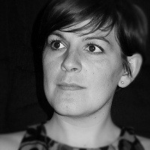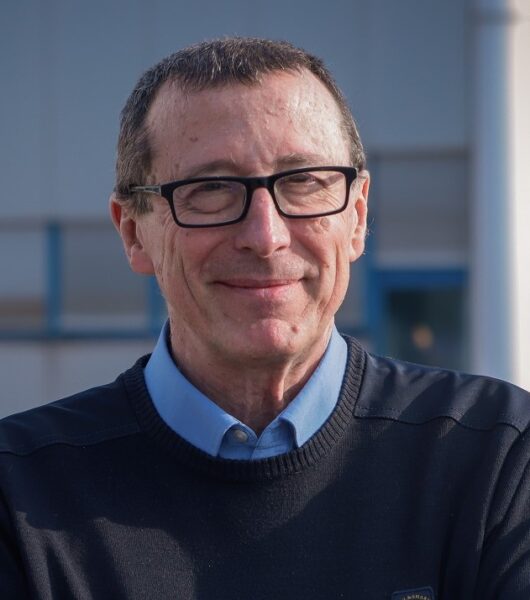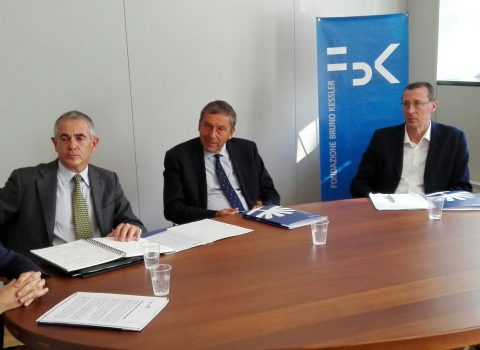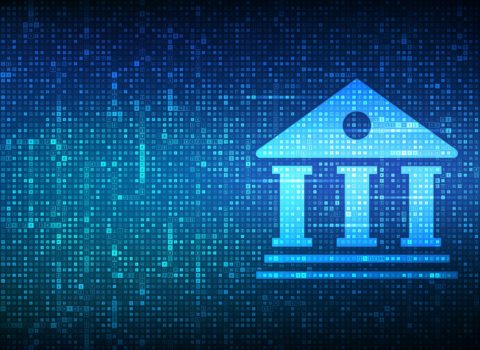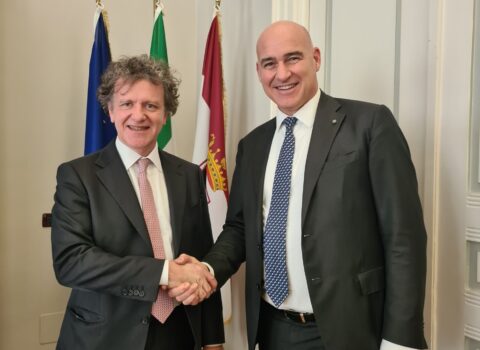
Ten years of Co-Innovation Lab between FBK and Deda
Bridging the gap between laboratory and market: this has been the goal on which Fondazione Bruno Kessler and Deda have focused over the last decade, developing a new open innovation model in the Trentino area. Collaboration between research and business continues to be the key to future projects, with a focus on
FBK and Deda met on Co-Innovation Day, the periodic event where we review the work carried out, the active laboratories, and above all, the new opportunities that the evolving innovation ecosystem can bring.
“The Co-Innovation Lab was created ten years ago, with enthusiasm and a shared goal: to bridge the gap between laboratories and the market on key topics such as Artificial Intelligence and Cybersecurity. From the beginning, we shared knowledge, experiences, and workshops where researchers and innovators from Fondazione Bruno Kessler and Deda came together,” said Paolo Traverso, Director of Strategic Planning at FBK. He continued: “ Today, we can celebrate the achievements reached through this long journey of co-innovation, during which FBK has had the opportunity to contribute its extensive experience in Artificial Intelligence and Cybersecurity, creating, together with Deda, a chain of research, experimentation, and market impact. This demonstrates that applying Big Tech solutions alone is not enough; specialized AI solutions are needed to solve real business problems.”
Indeed, ten years ago marked the beginning of the first laboratory based on the key concept of “impact” — delivering results both within the research center and for companies. Artificial Intelligence and Cybersecurity have remained the central focus, but as these technologies evolve daily, continuous work and discussion are essential.
“Innovation never starts in isolation. It is the result of shared visions, cross-sector experiences, and the willingness to build the future together. It must be cultivated with competence, dedication, and courage. This is the spirit of Co-Innovation Day: the event where Deda and FBK present the results of the co-innovation laboratories and circulate new ideas, breathing new life into a collaboration that began ten years ago,” commented Roberto Loro, Chief Technology Officer of Dedagroup.
Looking to the future with a sustainability-oriented approach, the next project involving FBK and Deda is the construction of the Intacture Data Center — an AI Factory and innovation hub inside a mine, protected by Dolomia rock and offering a unique level of physical and hydrogeological safety.
“A distinctive trait I found at FBK is its concreteness. The Co-Innovation Lab is an extremely effective tool for fostering coherent, long-term collaboration between research and business, as it enables strategic planning and the achievement of strong, lasting impact,” commented Michela Milano, Director of the FBK Center for Digital Society. She continued: “We need increasingly reliable systems that meet criteria of security, robustness, explainability, fairness, privacy preservation, and above all, sustainability. Today, smaller but highly accurate models are the answer.”
Co-Innovation Lab on Artificial Intelligence
Founded in 2016, the FBK and Deda Joint Laboratory — recently renamed CANDI (Collaborative AI and Next-gen Data Interoperability) — has significantly contributed to implementing next-generation solutions for digital transformation, data interoperability, artificial intelligence, and cloud-native platforms.
Among its most important achievements is the development of methodologies that turn data and AI models into concrete products — solutions applicable to companies and, in practical cases, to Public Administration as well.
“Our goal is to turn data and artificial intelligence into concrete, transparent, and reliable tools for society,” explained Raman Kazhamiakin, head of the Digital Society Lab (DSLab) unit at FBK’s Center for Digital Society and head of the laboratory. “Ten years of work have taught us that collaboration is the key to transforming advanced technologies into useful and sustainable services.”
Looking ahead, the CANDI Lab roadmap focuses on developing traceable and robust AI solutions and platforms — in compliance with AI regulations — ready to support specific domains and emerging challenges in digital transformation.
CLEANSE: the Co-Innovation Lab on Cybersecurity
The CLEANSE laboratory was born from the collaboration between Deda and the FBK Cybersecurity Center, with the goal of integrating cybersecurity throughout all phases of software development, ensuring security and “cleansing” from the outset. The approach focuses on cloud-native applications, secure communication between services, and the post-quantum transition, which by 2030 will require a complete overhaul of the internet’s cryptographic infrastructure. CLEANSE is structured as an extended and open ecosystem, designed to enhance synergies between Deda’s business units and FBK’s research units, while maximizing collaboration with universities and international research centers. Its methodology follows a cyclical path of sharing, research, innovation, and experimentation — without overlooking dissemination: from early collaborations through internships and theses, to the creation of concrete security tools tested in real-world scenarios alongside business units, and finally to the publication of guidelines, best practices, and open-source content. Among the lab’s strategic topics are the software supply chain and memory safety — a dimension that connects programming languages, hardware architectures, and the risks posed by the increasing use of AI in code generation, which accelerates development but also multiplies bugs. Looking to the future, the lab’s roadmap includes a focus on regulatory compliance and stronger synergy with academia to promote a culture of cybersecurity. The long-term vision is a systemic and continuous approach to security, integrated throughout the software life cycle and aimed at strengthening digital resilience in a rapidly evolving landscape. CLEANSE is configured as an extended and open ecosystem, able to enhance the synergies between Deda’s business units and FBK’s research units, seeking to maximize collaboration with international universities and research centers.
The methodology is divided into a cyclical path of sharing, research, innovation and experimentation without forgetting the dissemination phase: from the first collaborations through internships and theses to the creation of concrete security tools, tested in real scenarios together with the business units, up to the publication of guidelines, best practices and open source content. Among the strategic issues are the software supply chain and memory safety, a dimension that connects programming languages, hardware architectures and the risks deriving from the increasing use of AI for code generation, which accelerates development but multiplies bugs.
Looking ahead, the lab’s roadmap includes a focus on regulatory compliance and strengthened synergy with academia to spread the culture of cybersecurity. The long-term vision is that of a systemic and continuous approach to security, which accompanies the entire software life cycle and strengthens digital resilience in a rapidly changing scenario.

